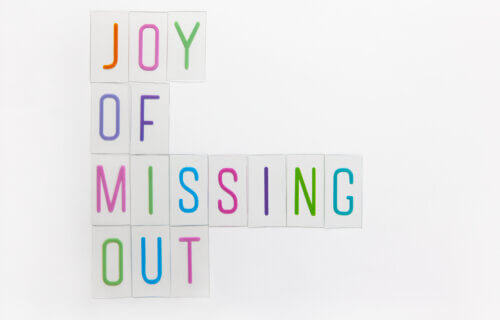PULLMAN, Wash. — The acronym “FOMO” (fear of missing out), used to describe anxiety related to possibly missing out on a fun or memorable experience, has been a popular expression for quite some time now. But what about JOMO, or the joy of missing out? Many people claim to embrace solitude and enjoy skipping social gatherings, but new findings from Washington State University suggest there may be more at play here than just enjoying a quiet night in.
Study authors report the majority of participants who ranked high in “joy of missing out” (JOMO) also reported high levels of social anxiety. Across two samples of adults, researchers noted mixed results regarding JOMO. More specifically, it appears there is some anxiety mixed in with the “joy” of missing out.
“In general, a lot of people like being connected,” says lead study author Chris Barry, a WSU psychology professor, in a media release. “When trying to assess JOMO, we found that some people were enjoying missing out, not for the solitude or a Zen-like, calming experience of being able to regroup, but more to avoid social interaction.”
Researchers note these findings may also help explain the previously noted correlation between JOMO and social media use. This observation surprised the researchers, since they were expecting people who wanted to miss out on social events not to care about checking what friends and family were doing. Barry adds a possible explanation is that for people with social anxiety, logging on to social media can actually serve as a less intense way to connect with others.

Diving deeper into the mechanisms behind JOMO
The research team held surveys with two different sets of roughly 500 participants each. To gauge JOMO, subjects were asked a slate of questions about if they enjoyed spending time alone and disconnection. For instance, whether or not the participants enjoyed having time to self-reflect and whether they were happy to see friends having a good time without them. The surveys also featured questions assessing loneliness, social anxiety, social media use, personality traits and life satisfaction.
An analysis of the first sample revealed connections among those high in JOMO to social media use and life satisfaction; but social anxiety actually had the strongest correlation.
So, due to these mixed results, the research team designed a second study in an attempt to see if they could identify a group of people high in JOMO, but low in social anxiety. While some such individuals were found, the group was small, accounting for just 10 percent of subjects. While not socially anxious, even this high JOMO group still reported at least some moderate feelings of loneliness.
Prior studies have connected FOMO to low self-esteem or loneliness, but this work suggests that the experience of JOMO is not as clear. Barry posits JOMO may not be a stable state or linked to personality traits, but instead is a momentary phase of feeling that one must disconnect for a certain period.
“There are a lot of unanswered questions like, ‘What’s a good dosage of social interaction versus disengagement?’ I think that’s going to differ for everyone,” Barry continues.
Previous work has shown that for people with anxiety, continual exposure to the thing they are anxious about can help lessen stress. So for those with social anxiety, more interaction, not less, is probably a better idea.
“The motives matter,” Barry concludes. “Why are people missing out? If it’s because they need to recharge, that’s maybe a good thing. If they’re trying to avoid something, that is probably not healthy in the long run.”
The study is published in Telematics and Informatics Reports.
